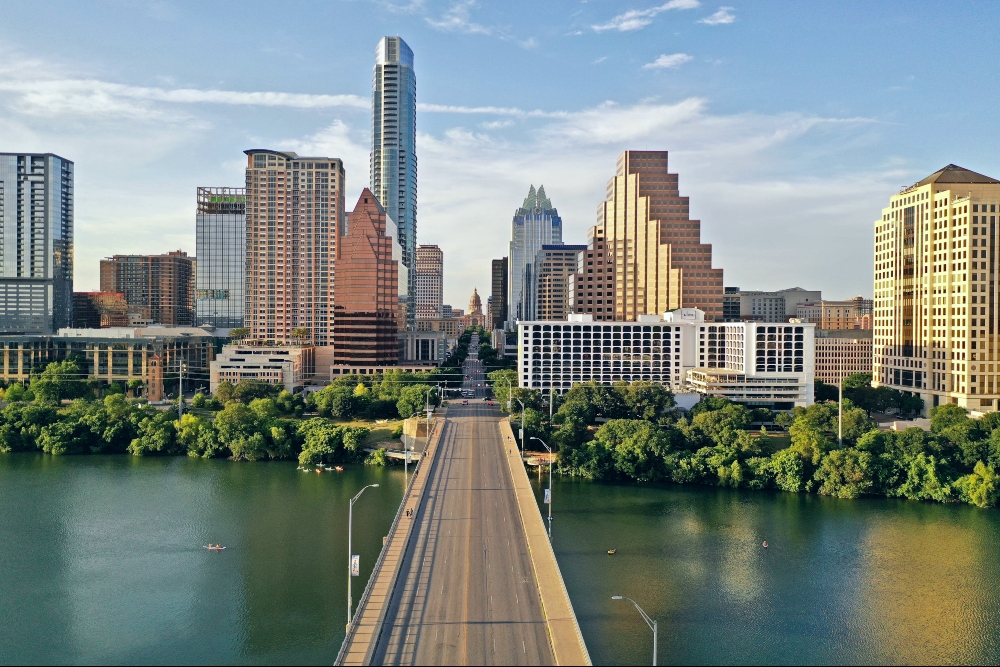Sorry Austin, Texas wants Uber back
Anyone in Austin with a pulse and the internet has heard by now that the Texas Legislature passed a state bill overruling the Austin ordinance requiring ridesharing companies to screen drivers through the city directly. The proposed law would still require criminal background checks on drivers, but rolls back the fingerprinting requirements that drove Uber and Lyft out of town.
Texas Governor Greg Abbott is expected to sign the bill into law, after which, Uber and Lyft have stated they will immediately resume operations.
City Mayors have argued this is an example of the state attempting to override local control so corporations can profit while public safety is at risk.
Uber and Lyft spent millions to fight and then overturn the 2015 Austin fingerprinting ordinance, but a sloppy campaign left locals confused (most of whom still can’t cite the facts). Add on top of that debacle that the outlying cities surrounding Austin proper, inserted themselves and wanted their cut – if Austin gets paid $X for every driver to get fingerprinted, they too should get $X.
Since then, local non-profit Ride Austin filled the void and when this bill passed in the Texas Legislature, they announced aggressive plans to challenge the 1099 model for ridesharing drivers, potentially moving to a bold W2 plan.
The pendulum of sentiment
Local sentiment has widely been enthusiastic about the potential return of the ridesharing giants, but nowhere more than in the tech community.
And the enthusiasm isn’t because Uber and Lyft are fellow tech companies, no, this has everything to do with a quiet pulse in the upper echelon of the tech community, and it’s all about the money.
You see, two major Austin City Council moves were made in recent years that gave the city an anti-tech reputation – Proposition 1 (that ended with Uber/Lyft evacuating the city) and Ordinance No. 20160223-A.1 which placed burdensome regulations on short-term rentals (STRs) by limiting occupancy to six unrelated adults, prohibiting indoor assemblies of over ten people, and requiring operators to give access to all buildings/rooms to the city without notice or warrant.
The STR Ordinance was particularly painful given that HomeAway is headquartered in Austin, one of the largest STR sites on the planet.
And locals were quite embarrassed when it came time for South by Southwest (one of the tech industry’s premier pilgrimages every year) and Uber wasn’t an option for visitors.
These regulations led to the tech industry ending an era of individuals caring about politics and the sector armed itself politically overnight as a whole, organizing in a meaningful way for the first time in Austin’s history.
Earning a bad rap
Despite the seeds of organization being planted, the regulations led to the perception that Austin politicians are anti-tech, which rippled throughout the tech and venture capital (VC) world.
Because investors, both of the angel or VC variety, see the city as not friendly to tech, they’ve quietly expressed an unwillingness to invest in Austin companies.
And who can blame them? If they invest funds in Austin companies and the city cuts them off at the knees, they believe they’ll be better served playing it safe in the Valley or in their own backyard.
Thus, the upper echelon in Austin tech is extremely excited about the expected return of Uber and Lyft. While there is a deep care and concern about mobility, the real reason being whispered in town, is that the kink in the financial hose will be straightened out and the flow will return, if not strengthen.
#DollaDollaBillsYall
Lani is the COO and News Director at The American Genius, has co-authored a book, co-founded BASHH, Austin Digital Jobs, Remote Digital Jobs, and is a seasoned business writer and editorialist with a penchant for the irreverent.










































Paul O'Brien
May 22, 2017 at 5:57 pm
It’s really not more complicated than this….. some of Austin thinks we’re all downtown and can/will bike to meetings. Most of Austin is everywhere but downtown and well beyond the city limits. If we can’t get around, we can’t do business. Making it burdensome to get around, just because, is stupid.
I don’t need to get an Uber. Austin being difficult about enabling any form of transportation makes it burdensome to get around and makes everyone in the world wonder why we’d bother to get in the middle of things that ease business.
Judah Ross
May 22, 2017 at 10:38 pm
Good, it’s about time the tech industry started throwing their weight around. We have enough special interest groups driving the conversation, at least tech is generally progressive and pro growth. Next lets put some energy into highways and density.
Pingback: Act II: Uber and Lyft are *almost* back in Austin - The American Genius